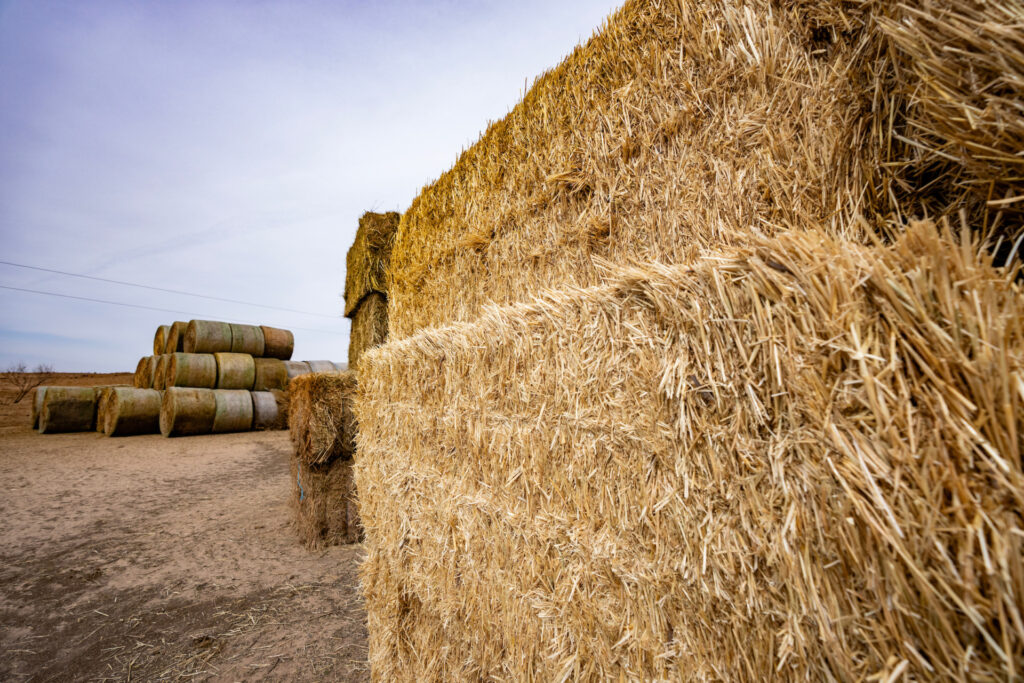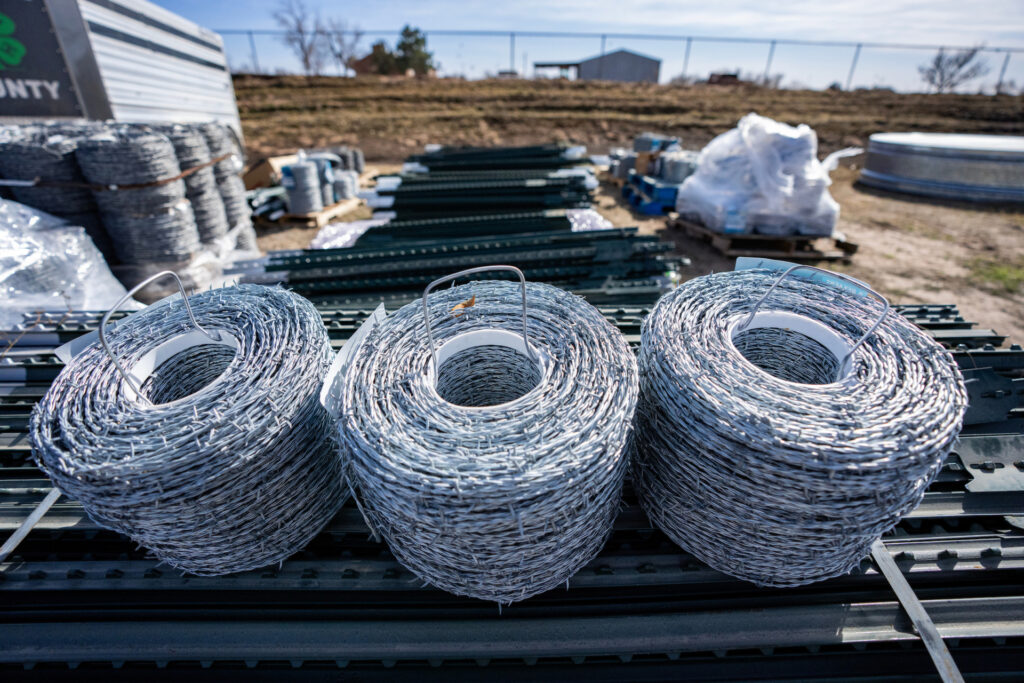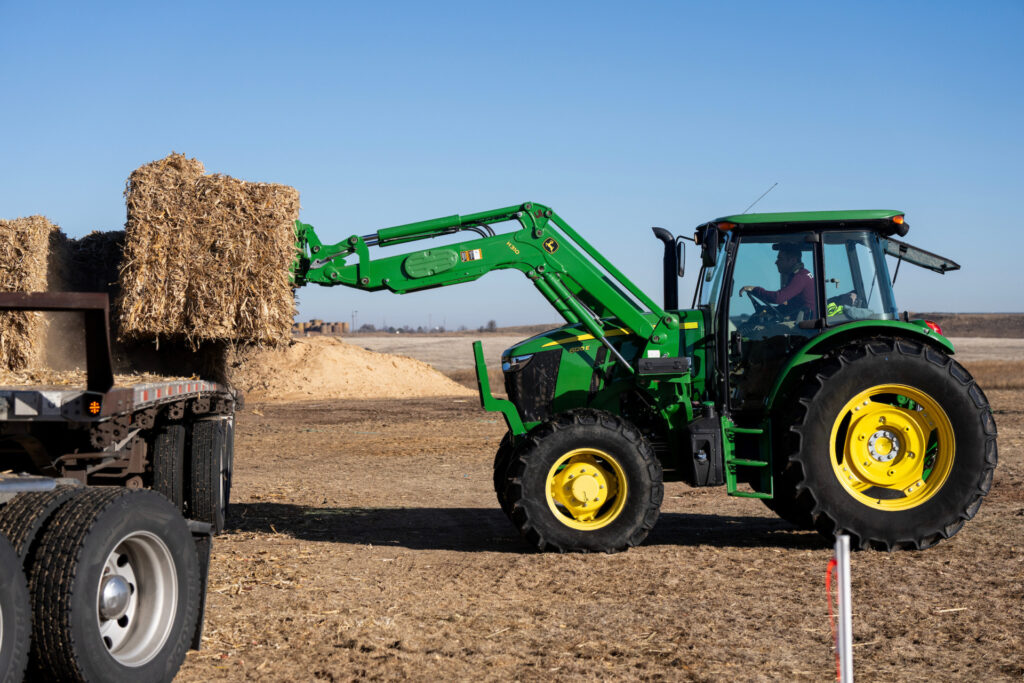Moving into the next stage of Panhandle wildfire recovery
Donation intake closing as distribution continues for AgriLife Extension-operated Animal Supply Points
Generosity from across the nation filled four Texas A&M AgriLife Extension Service Animal Supply Points since Feb. 28 in the wake of the Smokehouse Creek, Windy Deuce and Grapevine Creek wildfires, which burned over 1.2 million acres to become the largest wildfire in Texas history.

AgriLife Extension has received $4.4 million in commodity donations and $2.85 million in hay, feed and fencing supplies as of April 10.
“First, let me say, we want to thank everyone for sending their donations to the multiple supply points,” said Curtis Preston, AgriLife Extension Disaster Assessment Recovery, DAR, North Region area chief, Lubbock. “It’s almost impossible to put into words the amount of gratitude we have and that has been expressed by the ranchers and residents in the impacted area.”
The supply points are temporary operations to provide producers with hay and feed resources. They are designed to operate only a short time and not compete with local business outlets.
“We are now ready to taper off the receiving end of supplies,” Preston said. “We know the overwhelming generosity of those from across the state and nation will continue to flow in, and we will take them for the rest of this month.”
But at this point, he said, the ranchers are now able to better determine the supplies they will need moving forward.
“Most of our ranchers have run out of space to store feed, so we will continue to serve them and allow them to come in and pick up feed as they need it,” Preston said.
With that in mind, the Animal Supply Points will continue to accept incoming donations, especially for fencing supplies, through May 1, and have set a distribution deadline for on or about June 1.


Prepared and responsive
Within 48 hours of the fires, AgriLife Extension stood up four Animal Supply Points across the region most affected by the fire in Borger, Pampa, Miami and Canadian. An additional Human Resources Relief Center was set up in Canadian.
“The impact of these wildfires was mitigated by the quick response and continued efforts of AgriLife Extension and its DAR team, tasked to support the emergency response efforts statewide as part of The Texas A&M University System Keeping Texas Prepared initiative,” said Chancellor John Sharp.
“The DAR team’s experience with setting up supply points after previous wildfires, hurricanes and flooding has allowed them to process the tremendous amount of donations and distribute them in service to the people affected by those raging wildfires.”
The purpose of the Animal Supply Points is to help meet the immediate needs of area producers by providing feed for livestock for the short term while they assess their individual operations. The donations, which were received at fluctuating times, amounts and qualities, have come in large scale:
- They have accepted about 28,500 bales of hay and distributed 18,000 bales to ranchers so far.
- The sites also collected 2,200 tons of feed, of which 1,350 tons have been distributed.
- Fence posts: 20,366 received, 14,662 distributed. Rolls of barbed wire: 1,351 received and 901 distributed.

Animal Supply Points remain open to ranchers needs
Resource disbursement, the hay, feed and fencing materials, will continue to be provided to ranchers in need until all the supplies are depleted.
Unfortunately, Preston said, many ranchers have now become too experienced in recovering from wildfires after facing three or four over the past 20 years. They are settling in and waiting to see if the rains come and grass grows before they make more decisions.
“Many ranchers have worked with our local AgriLife Extension agents to set up a plan on how much feed they will need moving forward,” Preston said. “Some ranchers moved surviving cattle to other properties, and others are still feeding cattle every day. Ranchers can continue to pick up supplies as long as they last.”
Continued availability of supplies
During the peak of supply intake, Preston said they had as many as 10-15 DAR personnel, AgriLife Extension agents, and more than 50 volunteers dispersed among the five points. Most of those agents and volunteers have now returned to their normal work duty.
Now, with the reduction of intake at the Animal Supply Points, it will be the local county agents in Hutchinson, Gray, Hemphill and Roberts counties who remain on call for ranchers to continue to get resupplies of hay and feed. Distribution will continue through June 1.
– East Location Animal Supply Point: Clyde Carruth Pavilion, 301 Bull Barn Drive, Pampa. Contact Marcus Preuninger at 806-669-8033.
– West Location Animal Supply Point: Industrial Park, 407 Industrial Blvd., Borger. Contact Hanna Conner, 806-878-4026.
– Roberts County satellite Animal Supply Point, Miami Project Center, 619 E. Commercial, Miami. Contact Hannah Sell, 806-868-3191.
– North Location Animal Supply Point: Canadian AH&N Ranch Supply, 100 Hackberry St., Canadian. Contact Andy Holloway at 806-323-9114.





